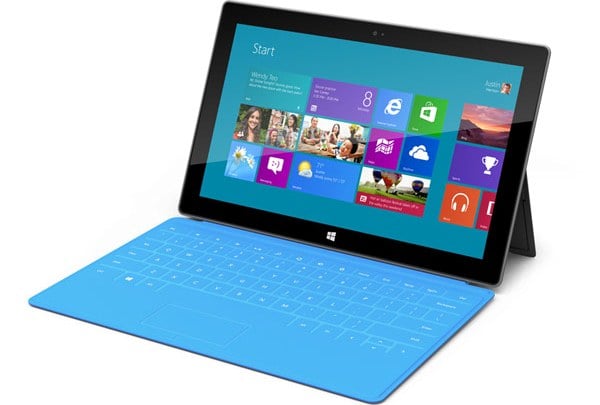Consumer Electronics
Why the PC Died So Fast -- Building a Better Chip
Published:
Last Updated:
It turns out that smaller is better, at least in the world of personal computers. This runs against the tide of other industries. In the fast-food business, bigger burgers are better, at least based on McDonald’s Corp. (NYSE: MCD) sales of burgers in general. In the car industry, the Ford Motor Co. (NYSE: F) F-150 pickup is still the top-selling vehicle in the United States. Source: courtesy of Microsoft
Source: courtesy of Microsoft
In the PC world, small beat large. For some reason people did not want to compute on desks, even if the keyboards were easier to use. Smaller at the level of laptops was not better either. Perhaps they weighed too much and were not thin enough. IDC predicts that tablet shipments will overtake PC shipments in the fourth quarter. In a word, or more:
The worldwide smart connected device market, comprised of PCs, tablets, and smartphones, is forecast to grow 27.8% year over year in 2013, slightly lower than the 30.3% growth in 2012. The growth will be driven by tablet and smartphone shipments, while the PC outlook has been lowered by 10% in 2013. As a result, the International Data Corporation (IDC) Worldwide Quarterly Smart Connected Device Tracker expects tablet shipments to surpass total PC shipments (desktop plus portable PCs) in the fourth quarter of 2013 (4Q13). PCs shipments are still expected to be greater than tablet shipments for the full year, but IDC forecasts tablet shipments will surpass total PC shipments on an annual basis by the end of 2015. Smartphones will continue to ship in high volumes, surpassing 1.4 billion units in 2015 and accounting for 69% of all smart connected device shipments worldwide.
As has been well documented, the movement to portable devices has begun to cripple the PC-centric leaders, which include Dell Inc. (NASDAQ: DELL), which has taken the risky path of loading itself with debt to go private; Microsoft Corp. (NASDAQ: MSFT), where CEO Steve Ballmer will leave, presumably because he could not solve the PC conundrum; and Intel Corp. (NASDAQ: INTC), which is racing to make chips for tablets and smartphones.
All in all, the chip was the difference. That cannot be overstated. People became used to the chip power of PCs, and they continued to want that power. The chip that evolved over three decades has become powerful enough to run everything from spreadsheets to graphics. Once that chip became small enough, without losing its computing power, the PC lost its edge. The small device gained share because it was no longer just a tiny brick with limited features.
It is not the smartphone or the tablet that ruined the PC. It was the tiny hardware that ran them.
Want retirement to come a few years earlier than you’d planned? Or are you ready to retire now, but want an extra set of eyes on your finances?
Now you can speak with up to 3 financial experts in your area for FREE. By simply clicking here you can begin to match with financial professionals who can help you build your plan to retire early. And the best part? The first conversation with them is free.
Click here to match with up to 3 financial pros who would be excited to help you make financial decisions.
Thank you for reading! Have some feedback for us?
Contact the 24/7 Wall St. editorial team.